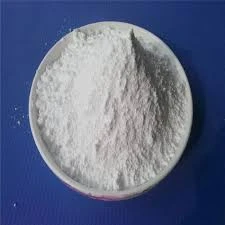Pyrroloquinoline Quinone An Overview of Its Biology and Potential Applications
Pyrroloquinoline quinone (PQQ) is a fascinating redox cofactor that has garnered considerable attention in the fields of biochemistry and nutrition. Discovered initially as a cofactor for specific enzymes in bacteria, PQQ has significant implications for human health and well-being. Structurally, PQQ is a heterocyclic compound composed of two fused rings and is related to the quinone family of molecules. Its unique attributes and potential health benefits render it a subject of intense research.
Biological Role
PQQ plays a crucial role in microbial metabolism, where it acts as a cofactor for various enzymes, particularly in the degradation of amino acids and carbohydrates. It is most recognized for its vital role in the function of the enzyme methanol dehydrogenase, which is key in the metabolism of methanol in certain bacteria. The ability of PQQ to participate in redox reactions allows it to facilitate the transfer of electrons, making it essential for cellular energy production.
While PQQ is primarily studied in prokaryotic organisms, research has indicated its significance in human physiology as well. Disturbingly, the body cannot synthesize PQQ and must obtain it from dietary sources. Although PQQ is found in various foods such as natto (fermented soybeans), green peppers, and kiwi, the exact daily requirements remain uncertain. Nonetheless, its presence in the human body and its potential health benefits are widely researched.
Antioxidant Properties
One of the most well-known characteristics of PQQ is its antioxidant potential. Antioxidants are substances that combat oxidative stress by neutralizing free radicals, which are unstable molecules that can cause cellular damage, leading to aging and various diseases. PQQ has been demonstrated to have a potent ability to scavenge free radicals, thereby protecting cells from oxidative damage. This property not only protects healthy cells but also supports the overall homeostasis of the body.
Studies have suggested that PQQ may play a role in promoting mitochondrial biogenesis. Mitochondria are the powerhouses of the cell, responsible for energy production. An increase in mitochondrial activity can lead to improved metabolic health, enhanced physical performance, and better cognitive function. Consequently, PQQ's influence on mitochondrial function highlights its potential as an important compound in anti-aging research and general health maintenance.
pyrrolo quinoline quinone

Neuroprotective Effects
Emerging evidence suggests that PQQ may possess neuroprotective effects, which could be particularly beneficial in the context of neurodegenerative diseases such as Alzheimer’s and Parkinson’s. Research indicates that PQQ can promote the survival of neurons by reducing oxidative stress and inflammation—two major contributors to neuronal damage and death.
Additionally, some studies have suggested that PQQ might enhance cognitive function and memory by supporting neural health and promoting the growth of new synapses. As such, PQQ has generated interest as a potential therapeutic agent for elderly populations or individuals at risk of cognitive decline.
Potential Applications
Given its diverse biological roles and therapeutic potential, PQQ is being investigated for various applications. Nutritional supplements containing PQQ have begun to appear on the market, marketed for their potential to enhance energy levels, support cardiovascular health, and improve cognitive function. These supplements are particularly appealing to individuals seeking natural alternatives to combat fatigue and boost mental acuity.
Moreover, PQQ's antioxidant and anti-inflammatory properties may position it as a candidate for the development of pharmaceuticals aimed at treating or preventing chronic conditions such as diabetes, heart disease, and age-related disorders.
Conclusion
In conclusion, pyrroloquinoline quinone is a multifaceted compound that holds promise for enhancing human health and well-being. Its roles as a cofactor, antioxidant, and potential neuroprotective agent underline its significance in biochemistry and nutrition. As research continues to unfold, the understanding of PQQ's mechanisms and its applications could pave the way for new dietary recommendations and therapeutic developments. As we continue to unlock the secrets of this intriguing molecule, it may play a pivotal role in promoting a healthier, more vibrant life.

